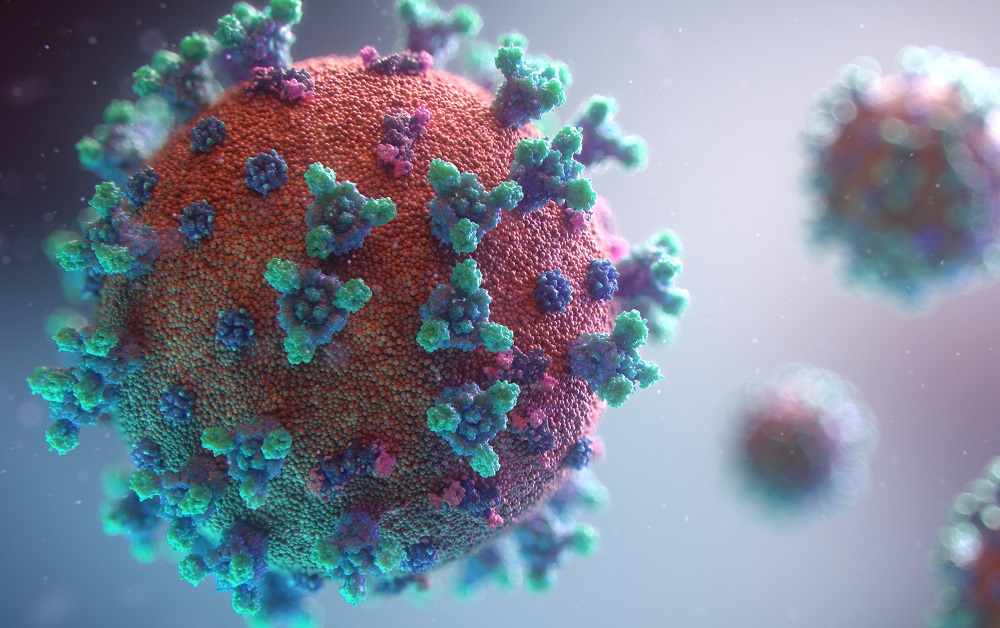SARS-CoV-2 VARIANTS and MUTATION
RNA viruses are more unstable and therefore mutate easily. Change in the spikes of the virus change its ability to attach to the mucosal surface lining the respiratory tract and therefore it’s virulence.

Viruses are either DNA or RNA molecules. DNA viruses are more stable and have a proofreading ability therefore do not mutate as much. RNA viruses are more unstable and therefore mutate easily. Examples of RNA viruses are influenza and measles viruses. SARS-CoV-2 (COVID-19 disease causing) virus is an RNA virus, therefore prone to mutation. The faster the viruses replicate, the higher the chance of mutation. Multiple strains of Covid-19 have been documented globally during this pandemic.
The virus that causes COVID-19 is a type of coronavirus, a large family of viruses. Coronaviruses are named for the crown-like spikes on their surfaces. Scientists monitor changes in the virus, including changes to the spikes on the surface of the virus closely. Change in the spikes of the virus change its ability to attach to the mucosal surface lining the respiratory tract and therefore it’s virulence.
Strains of Covid-19
Multiple variants of the virus that causes COVID-19 are circulating globally:
- The United Kingdom (UK) variant called B.1.1.7 with large number of mutations was first seen in South of the country in September 2020. This variant spreads more easily and quickly than other variants. In January 2021, experts in the UK reported that this variant may be associated with increased transmissibility and higher risk of death compared to other variants. Further studies are needed to confirm this finding. It has since been detected in many countries around the world. This variant was first detected in the US at the end of December 2020.
- In South Africa (Nelson Mandela Bay), another variant called B.1.351 emerged independently of B.1.1.7. Originally detected in early October 2020, B.1.351 shares some mutations with B.1.1.7. This was the predominant variant in Zambia by October 2020. Cases caused by this variant were reported in the US at the end of January 2021.
- In Brazil, a variant called P.1 emerged that was first identified in travelers from Brazil, who were tested during routine screening at Haneda airport outside Tokyo in early January 2021. This variant contains a set of additional mutations that may affect its ability to be recognized by antibodies. This variant was first detected in the US at the end of January 2021.
Also Read: Covid-19 – Prevention and Mitigation
Signup today and find a doctor near you
Geographic distance causes the wild type (original) SARS-CoV-2 virus to mutate differently.
So far, studies suggest that antibodies generated through vaccination with currently authorized vaccines recognize these variants. This is being closely investigated and more studies are underway to evaluate it further. Scientific community believes booster dose of vaccination will enhance immunity against the virus.
Rigorous and increased compliance with public health mitigation strategies, such as vaccination, physical distancing, use of masks, hand hygiene, and isolation and quarantine, is essential to limit the spread of the virus that causes COVID-19 and protect public health.
The Unknowns about Covid Mutations
- How widely new variants have spread?
- How the disease caused by these new variants differs from the disease caused by other variants that are currently circulating?
- How may these variants affect existing therapies, vaccines, and tests?
Consensus amongst scientists and physicians is:
- Further strains of Covid-19 are expected
- Same precautions – social distancing, facemask and hand hygiene need to be observed even after vaccination till results of further studies are available
- Prevention of spread of virus will curb its ability to mutate
- Enough features of the wild type of virus (original virus) will remain to provide high level immunity with coronavirus vaccine
Potential consequences of Covid-19 Strains
- Ability to spread more quickly in people. There is already evidence that one mutation, D614G, confers increased ability to spread more quickly than the wild-type SARS-CoV-2.
- Ability to cause either milder or more severe disease in people. In January 2021, experts in the UK reported that B.1.1.7 variant may be associated with an increased risk of death compared to other variants. More studies are needed to confirm this finding.
- Ability to evade detection by specific viral diagnostic tests. Most commercial reverse-transcription polymerase chain reaction (RT-PCR)-based tests have multiple targets to detect the virus, such that even if a mutation impacts one of the targets, the other RT-PCR targets will still work.
- Decreased susceptibility to therapeutic agents such as monoclonal antibodies.
- Ability to evade natural or vaccine-induced immunity. Both vaccination against and natural infection with SARS-CoV-2 produce a “polyclonal” response that targets several parts of the spike protein. Multiple strains of Covid-19 would need to accumulate in the spike protein to evade immunity induced by vaccines or by natural infection.
Knowledge about SARS-CoV-2 is rapidly changing as scientific community is learning more about the virus from clinical and laboratory studies. It is imperative to regularly visit WHO or CDC sites for updates. mHospital can assist you in diagnosing the virus and mitigating its effect. Schedule an appointment with the doctors at mHospital today.





